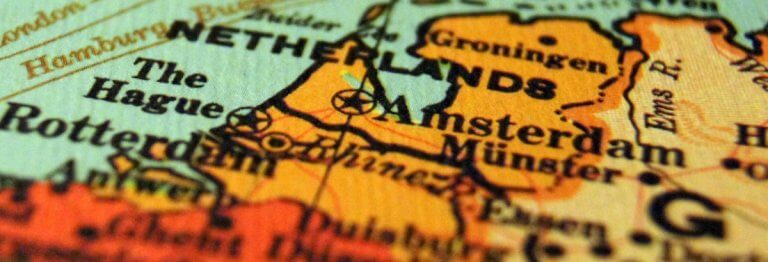
The Dutch are famously liberal. They’re very open about sex, have made certain drugs legal, allowed same-sex marriages as far back as 2001 and do not punish euthanasia.
All things considered, you would think they would be welcoming international students with their arms wide open. After all, as much research has shown, a diverse student community brings vibrancy to society, improves cross-cultural understanding, boosts local economies and enriches the learning environment in its educational institutions.
As a result, many countries open their doors to students from as many nationalities as possible. The Netherlands is one of them. Since 2005, the number of non-EU students alone has more than quadrupled from 11,234 to 48,507 in 2017 due to the country’s increased focus on internationalisation within its higher education sector.
Retweeted Nuffic (@Nuffic):
Where do international students in the Netherlands come from? You'll find it in the latest figures. https://t.co/PvSwGcon99 pic.twitter.com/GTIQoNZ3Cu https://t.co/PvSwGcon99
— Matthijs van Bonzel (@MatthijsvBonzel) May 14, 2018
In total, there are now 122,000 international students from 162 different countries currently studying at a Dutch university or university of applied science, an analysis by Nuffic found. Universities expanded courses offered in the English language to fuel this boom and the Dutch economy reaps at least €1 billion annually from their presence in the country.
A series of recent media reports, however, shows that this welcoming stance towards international students is now at risk of being eroded.
At the centre of the debate is the issue of courses Dutch universities are offering in English. Earlier this week, education officials said they plan to curb the number of such courses taught at universities to stem the influx of international students on its shores.
It’s an issue that has been brewing since the beginning of the year. At the University of Amsterdam’s (UvA) 386th birthday in January, its rector Karen Maex gave a speech where she asked the audience to imagine a future in which 80 percent of the students are German or Chinese.
“This is not in line with what we have in mind for an international classroom”, she said.
Maex added that as English language programmes grow more popular, local students are forced to compete with those from abroad to get into these programmes. In the end, they may end up being crowded out.
“The Netherlands’ higher education institutions said the number of courses given in English should be capped in an attempt to contain the growing number of international students.” https://t.co/5Dx43whN9E
— Phil Baty (@Phil_Baty) May 19, 2018
Dutch universities should give “full attention” to the challenge of maintaining accessibility for Dutch students as the higher education sector is rapidly internationalising, Maex said.
Other problems have been blamed on universities’ increasing recruitment of international students as well. For one, local politician Laurens Ivens of the Socialist Party (SP) said international students are crowding the local housing market. Local students are reportedly forced to stay in emergency shelters thanks to the structural shortage in affordable housing.
Monday’s announcement by the government appears to be in response to these outcries.
Even if “the internationalisation of higher education brings added value…there must always be a place for Dutch students” at the country’s 14 universities, the Education Ministry said, as reported by Channel News Asia.
“The clauses in the law pertaining to the choice of language in higher and vocational education must be revised,” the Ministry said, adding that greater focus must be made to ensure “accessibility to education for Dutch students”.
Such a move is likely to be seen as welcoming by international students. According to a 2017 survey by Hobsons, how welcoming a country is to international students is the second most important consideration to international students when choosing a country in which to pursue their studies. It’s second only to the availability of high-quality teaching at its universities.
Political rhetoric, such as a lawsuit alleging the “Anglicisation” of courses Twente University and the University of Maastricht is leading to an “impoverishment” and a “dangerous abandonment” of the Dutch language.
With the recent restriction on student jobs available to help foreigners support themselves during their studies, such hostility can be costly to the country’s universities.
Education Minister Ingrid van Engelshoven recognises the risk of a country becoming too inward-looking. In a statement, she said she represents “an open Dutch society in which we dare to look beyond the borders”.
“We must not let ourselves be scared by stories in which internationalisation is something negative which is swamping us,” she added.
Liked this? Then you’ll love these…
Is Amsterdam admitting too many international students?
What makes Germany so desirable for international students in Europe?







